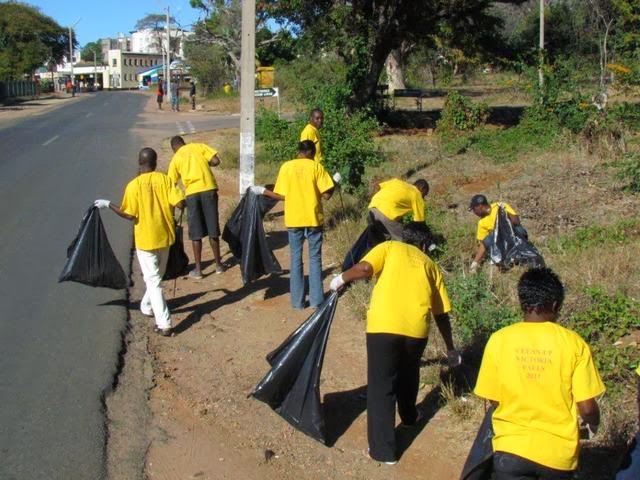The notion of volunteerism is often seen
as a tool for peace and development. This is mainly due to its benefit to the individual
volunteers and the contribution it makes to the peaceful coexistence of people
within communities and the development of societies. Volunteering
opportunities, especially at community level, tend to bring people together to
work in solidarity towards addressing issues and challenges affecting
communities. They are a way of giving back responsibly and adding value to
community projects. But volunteering is also a major driving force for environmental
sustainability and protection of natural resources.
Since August
2013, Mazingira Safi Initiative has made significant strides towards building a
community based waste management system in Nairobi and inspiring communities to
take up the responsibility of cleaning their environment. The initiative is
just one powerful example that exists in different parts of Kenya and the world
at large of people uniting and mobilizing action through volunteerism to
address the challenges of litter, improper waste disposal, and individual
attitude against environmental cleanliness. Just like the greenbelt movement, which,
through the power and support of volunteers managed to empower communities,
especially women in communities, to improve their livelihoods by conserving the
environment, the initiative is using the power of volunteers to gradually
building a strong movement of “clean freaks”, also known as “msafites”. These
are individuals from all walks of life who are radical about the cleanliness of
the environment.
A movement is comprised of radically minded individuals who are brought together by their desperation to be the change they want to see. History has it that movements can bring down outdated systems, overthrow poorly run governments, and caused terror among those in opposition to positive change. If the combined effort of the ever growing 1000+ "MSafites" is well facilitated, then this will not only support the attainment of environmentally sustainable outcomes but also promote a long lasting process that changes people’s attitudes and perceptions towards the environment and encourage resilience towards realization of change. Volunteering is a critical driving force that will continue to build the “Msafite movement”.
 |
| Volunteers during one of the MSI's cleanups |
All Kenyans should be part of this new wave of clean freaks and give first priority to the environment and the well-being of people before anything else. Without sustainability, problems such as poverty can never end because pollution, uncleanliness, and environmental disasters deeply affect the poor. Supporting and encouraging each other to be environmental ambassadors in our most immediate environment, puts us in the right path towards achieving sustainability. What Nairobi and the whole of Kenya needs, is msafites and like minded individuals to mobilize resources to ensure that the streets, neighborhoods, towns, and markets remain clean.
 |
| It takes our collective effort to ensure streets remain this clean. |





.jpg)



.jpg)
